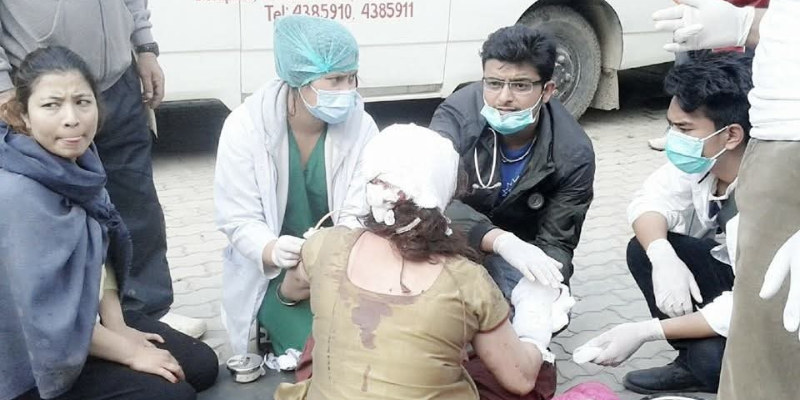In my work as an oncologist, I have had the opportunity to listen to many people undergoing significant suffering. From receiving a life changing diagnosis or from the many struggles that can arise in our daily lives, we all experience hard times and difficult situations. Whether we call it heartache, unhappiness, pain or sorrow, our suffering occurs reliably and can be uncomfortable to acknowledge or to talk about.
Last week, I had a conversation with a patient regarding several side effects from her chemotherapy treatment. The medications were causing joint aches that were enough to keep her from sleeping well and that were limiting the normal activities she enjoyed. As she described her symptoms, she repeatedly told me that “she was ok” and that she didn’t want to complain. She said she could “get through it and knew it could be worse”. As she was saying this, her husband added gently that she was crying most of the days following the treatment and that she could not eat or sleep at times because the pain was so bad. He encouraged her to tell me exactly how she was feeling and not to minimize how hard it had been. He was so worried. He expressed how her pain was becoming very difficult for him to see and experience. He told me that she had been unable to spend a recent holiday with her family because she was in bed and how sad she had been to have missed spending time with her grandchildren. He was worried because it was affecting her appetite and that she was becoming so depressed.
As he was sharing, she began to cry.
She said she felt embarrassed to tell me the real story because she believed that other people had it harder…that the people she saw in the waiting room every week had more important struggles and that her suffering wasn’t as great. She felt ashamed to complain about her pain, even though it had become so debilitating. She felt guilty because she believed she would be cured when other people would not. She was tender and sweet and so very real and I appreciated the bravery it took to tell me the whole story. It ultimately allowed me to see her clearly and to know the degree of her discomfort. Her authenticity and ability to acknowledge her own suffering created an opportunity for her symptoms to be managed and for her husband to be supported. It allowed her to see her husband clearly and to recognize the unease he was experiencing.
Her story has reminded me how easy it is to feel ashamed when I express my own suffering. The tendency I have to minimize my own feelings and to compare how much I am hurting to the pain of other people. Every time I watch the news, I feel fortunate to be safe in my own home. Every time I see patients in my clinic, I feel relieved that at this moment I am healthy. Each time that I am able to go to the grocery store and buy exactly what I need, I am grateful I have a job and means to provide. But it doesn’t mean I don’t have struggles and sadness and pain. It doesn’t mean my own feelings aren’t important. It does not mean that shame can dictate how I take care of myself.
I extend this gentle invitation:
Lean into your pain and hard times…
Try to tell the whole story…
Remember that your discomfort is as important as everyone else’s…
Know that by sharing your own difficulties you may be able to see the suffering of others more clearly.
May we all find ease, may we all feel deeply, share openly and support one another.
- Want to know more about our Palliative Care Education programs? Click below:



